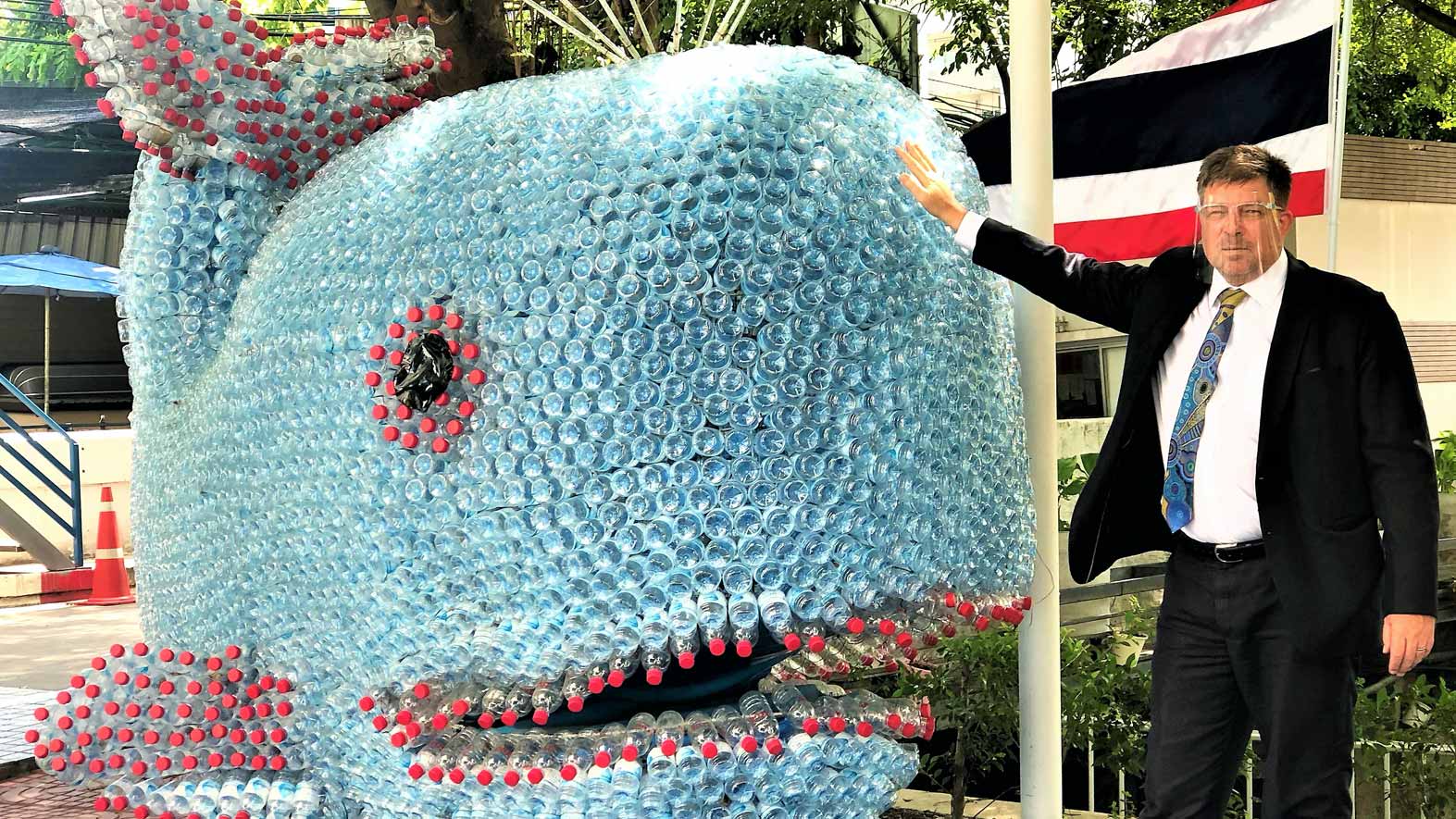UNESCO, together with Government nominated plastic-waste-management specialists from Cambodia, Lao PDR, Myanmar, Singapore, Thailand, and Vietnam, supported by representatives of several UN agencies, Embassies, NGOs, private sector, and young people, highlighted the necessity to produce ‘Plastic-Management-National-Action Plans’. The need for these plans was expressed during the World Science Day celebration at the UNESCO Bangkok Office in November 2018. The Rwandan keynote speaker and Government representative Norbert Remy Duhuze explained the difficulty and how he overcame them in is country, during the process when Rwanda become the first single-use plastic free country globally. The Vietnamese representative at that time announced that her country was already in process producing a National Action Plan.
Indonesia was also very active, and, as a result, the GPAP/NPAP & The Coordinating Ministry for Maritime Affairs and Investment organized a NPAP Indonesia Digital Conference in April 2020, which included the launch of the Action Plan.
We congratulate the authors for this good success, and we encourage the reader to download and use these documents in the best interest of ‘Beating the Plastic Pollution’, as it was the them of World Environment Day 2018.
Vietnam:
The Vietnam Administration of Sea and Island/Ministry of Natural Resources and Environment (MONRE) has authorized UNESCO put the Vietnam National Action Plan on Marine Litter onto ‘The Plastic Initiative’ website for free download. They also authorized UNESC to refer to the document on their own website.
Indonesia:
The Indonesian national action plan is very interesting and valuable, with excellent layout and illustrations and with a foreword by the Coordinating Minister for Maritime Affairs and Investment. It is very suitable for an international audience.
The plan has five points of action. To successfully reach the 70% reduction target by 2025, the authorities are committed to leading five system-change interventions that will change the way plastics are produced, used, and disposed of:
- Reduce or substitute plastic usage to prevent the consumption of 1.1 million tonnes of plastic per year.
- Redesign plastic products and packaging with reuse or recycling in mind.
Double plastic waste collection to 80% by 2025. - Double the current recycling capacity to process an additional 975,000 tonnes of plastic waste per year.
- Build or expand safe waste disposal facilities.
The document is copyrighted by the World Economic Forum as host of the Global Plastic Action Partnership. Permission has been granted to UNESCO to make the plan available on its website as an open access / open science resource. More information is available here.
UNEP & IUCN:
Moreover, the United Nations Environment Programme (UNEP), jointly with the International Union for Conservation of Nature (IUCN), and the Life Cycle Initiative published an important document National Guidance for Plastic Pollution Hotspotting and Shaping Action. Quote: ‘The Guidance takes a holistic approach, covering the analysis of major types of plastic polymers, products, sectors, and geographical locations; the recommendations contain comprehensive sets of instruments and solutions from both upstream and downstream perspectives. It enables countries, regions, and cities to establish a baseline for benchmarking and tracking the progress of suggested interventions. Alongside with the guidance, (they) also developed modules and tools to help users for data collection, modelling, calculations and developing interventions.’ More information is available here.


